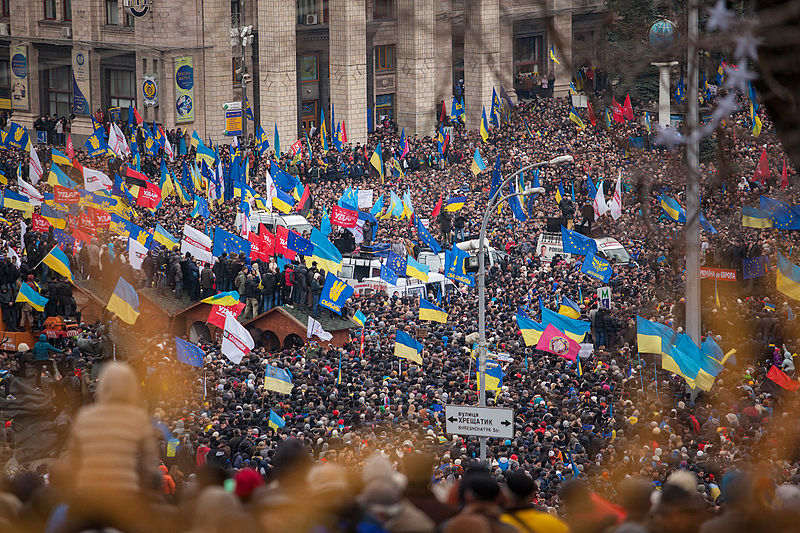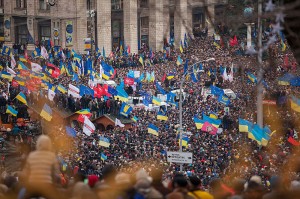
 On Friday the Ukrainian President Viktor Yanukovych signed into law a decree granting amnesty to protesters, detained since the start of the the crisis in November last year. The head of the state also approved repealing of the anti-protest law.
On Friday the Ukrainian President Viktor Yanukovych signed into law a decree granting amnesty to protesters, detained since the start of the the crisis in November last year. The head of the state also approved repealing of the anti-protest law.
The new amnesty law which comes with conditions from the government of Yanukovich will allow the jailed protesters to go free. The conditions set forth by the government require the protesters to leave the government buildings they had occupied in Western Ukraine within a 15-day period. The opposition, wary of breaking the momentum of the movement, already rejected the offer, although it welcomed the repealing of laws which had imposed bans on unauthorized tents in public areas, prohibited wearing masks and helmets in public gatherings and set jail terms for imprisonment of those who blocked the public buildings to up to 5 years in prison.
The government sees these concessions as proper steps to end the mass riots which had set the capital Kiev in aflame. So far, at least four people died and hundreds were injured. Although the causes of each death are unknown, the opposition has made an outcry about the brutality of the Ukrainian law enforcement. The infamous “Berkut” is often cited as the most cruel force among the law enforcement units fighting the protesters.
“Berkut” which means Golden Eagle is an elite unit of the Ministry of Internal Affairs of Ukraine, tasked to bring down the “enemies of the state”. In its reported full capacity of 4 to 5 thousand elite officers, “Berkut” is thought to have transformed into what it is now from the OMON (Otryad Militsii Osobogo Naznacheniya) units, special forces of Soviet police created in the dying days of USSR. “Berkut” officers are a group of well trained soldiers with previous experience in regular police. They are also one of the most highly paid law enforcement units in Ukraine.
New images of severely beaten opposition leaders and activists are likely to exacerbate the situation. Dmytro Bulatov, one of opposition activists appeared on TV on Thursday claiming he was kidnapped, brutally beaten and crucified by unidentified individuals and then dumped in the forest, left to the mercy of freezing temperatures. According to Bulatov, he was interrogated and asked which forces were funding the opposition efforts.
In the meantime, the opposition leaders traveled to Munich asking the Western government to be more proactive in demanding the halt to a violent crackdown of riots by the Yanukovich government.
Mass riots in Ukraine started last November when the Ukrainian government jettisoned the plans to join the plans to join EU. The riots which by mid January drew hundreds of thousands to protest government’s policies, turned violent on January 19. The Yanukovich government who the EU leaders hoped will integrate Ukraine into Europe, opted for a $15 billion immediate loan from Russia instead.
Ukraine, in many aspects, is considered a breaking point in the competition between EU – and the United States, for that matter – and Russia. That’s another reason why Moscow is not going to let Kiev slip away that easy. As the old saying goes, “Russia without Ukraine is a country; Russia with Ukraine is an empire.”




